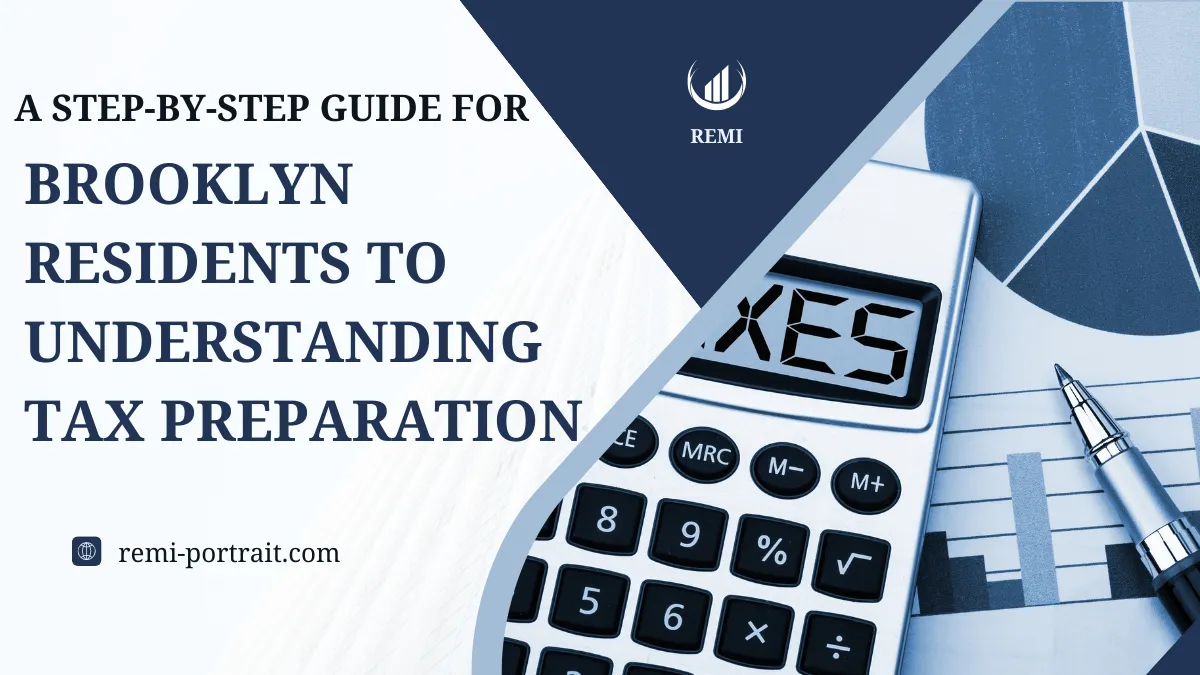Table of Contents
Tax season can be a daunting time for many Brooklyn residents. As the bustling neighborhoods of Brooklyn gear up for another tax season, navigating through the maze of tax codes and regulations can feel overwhelming. From the vibrant streets of Williamsburg to the historic brownstones of Park Slope, Brooklynites are preparing to tackle their taxes and ensure they’re making the most of their city living. However, if you take the appropriate strategy, you can take charge of your money and make sure you’re maximizing your deductions while abiding by the law. This step-by-step guide will break down the process of tax preparation in Brooklyn into manageable tasks, empowering you to navigate the complexities of tax season with confidence.
Gather Your Documents:
Before diving into tax preparation, gathering all the necessary documents is crucial. This includes W-2 forms from your employer, 1099 forms for any freelance or contractual work, receipts for deductible expenses such as hospital bills and charitable donations, and any other relevant financial records. Organizing these documents will streamline the tax preparation process and ensure you don’t overlook any essential information.
Choose the Right Tax Filing Method:
Brooklyn residents have several options when it comes to filing their taxes. You can choose to file manually using paper forms, but for most people, electronic filing is the preferred method. Whether you opt for tax preparation software or enlist the help of a professional tax preparer, make sure to select the method that best suits your needs and budget.
Understand Your Filing Status:
Your filing status significantly determines your tax liability and eligibility for certain deductions and credits. Common filing statuses include single, married filing jointly, married filing separately, and head of household. Make sure to accurately determine your filing status to avoid errors in your tax return.
Calculate Your Income:
Calculating your income is a fundamental step in tax preparation. This includes not only your wages from employment but also any additional sources of income such as interest, dividends, and rental income. Be thorough in reporting all sources of income to avoid potential audits or penalties from the IRS.
Claim Your Deductions and Credits:
Making the most of credits and deductions will help you lower your tax liability. The Earned Income Tax Credit and the Child Tax Credit are examples of credits, whereas common deductions include mortgage payments, property taxes, and student loan interest. You can reduce your tax liability by investigating the credits and deductions that apply to your circumstances.
Review Your Tax Return:
Before submitting your tax return, take the time to review it carefully. Double-check all entries for accuracy, ensuring your income, deductions, and credits are reported correctly. It is imperative that you thoroughly evaluate your tax return because mistakes might cause processing delays or even result in an audit.
File Your Taxes:
It’s time to file once you’re confident that your tax return is accurate and complete. If you’re using tax preparation software, you can usually e-file your return directly from the program. If you prefer to file your tax by mail, send your return to the appropriate IRS address for your area.
Consider Tax Planning for the Future:
Tax preparation isn’t just about filing your taxes for the current year; it’s also an opportunity to plan for the future. Consider strategies for minimizing your tax liability in the coming years, such as contributing to retirement accounts or taking advantage of tax-advantaged savings accounts. By staying proactive and informed, you can set yourself up for financial success in the long term.
In conclusion, tax preparation in Brooklyn doesn’t have to be a source of stress and anxiety. By following this step-by-step guide, Brooklyn residents can confidently take control of their finances and navigate the tax season. From gathering your documents to filing your return, each step is crucial in ensuring compliance with the law and maximizing your tax savings. With careful planning and attention to detail, you can conquer tax season and set yourself up for a brighter financial future.




